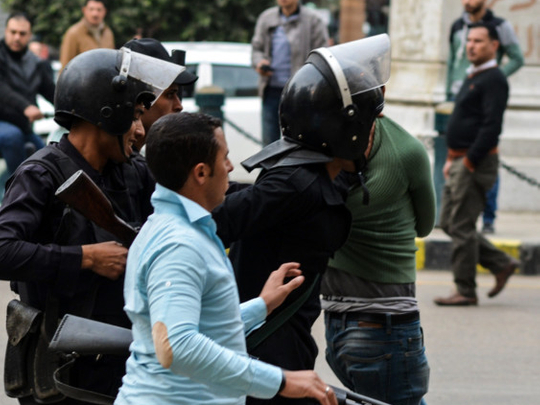
Cairo: Egyptian police Saturday evening used tear gas to disperse a march by anti-government activists in central Cairo amid tight security in the country on the eve of the anniversary of the start of the 2011 uprising that eventually ousted long-time president Hosni Mubarak.
One activist was killed in the unrest, health authorities said.
Anti-riot police broke up the march held by the leftist Socialist Popular Alliance Party to commemorate the uprising near Tahrir Square, the epicentre of the anti-Mubarak revolt. Police said six people were arrested for participating in the “unauthorized” rally and illegaly setting off fireworks.
The party identified the slain protester as its member Shaima Al Sabagh, saying she died of injuries caused by birdshot fired by police during the march. The Interior Ministry, which is in charge of security in Egypt, tersely said a girl was injured during what it called “dispersal of the riot” and later died in hospital.
“The ministry calls on citizens to avoid such gatherings that can be infiltrated by terrorist elements,” it said in a statement.
Meanwhile, security troops, deployed in Tahrir, allowed families of people killed and injured in the anti-Mubarak uprising, to enter the square to lay flowers and plant trees in their memory.
Police and army forces have been positioned in the square since the military deposed president Mohammad Mursi of the Muslim Brotherhood in 2013. The measure is aimed at barring Mursi’s backers from holding a sit-in the iconic square.
Egyptian authorities have stepped up security across the nation in recent days after the Brotherhood and secular anti-government groups called for street protests on the uprising anniversary.
Security officials have warned that their troops will deal firmly with “illegal’ rallies and acts of violence.
In November 2013, the government started enforcing a law heavily restricting protests. Dozens of activists have since been arrested and put on trial for violating the disputed law.












